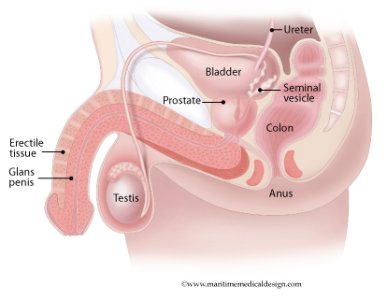Getting you and Your Partner Off
To increase your sexual satisfaction, it is important to address the six most common types of sexual performance problems.
Impotence problems reflect struggles with achieving and maintaining an erection.
Ejaculation problems
Sometimes a guy gets off too quickly or not able to get off at all. Ejaculation is when come is present and is not the same as an orgasm. They are often linked, so confusion is possible.
Orgasm problems
Some people aren't able to orgasm. An orgasm is the body response that is “involuntary” to sexual arousal. It is equivalent to the “sneezing” response of the body --it is going to happen no matter what.
Anal pain
Some people have too much pain when getting penetrated.
Low Sexual Desire
Sexual desire changes over time, both in terms of frequency and targets of sexual pleasure.
Sexual Aversion
An avoidance of sexuality or sexual behavior.
Obstacles To Blast Off
Medical care
You've heard it before but it still holds true. The first place of intervention is to get a complete medical check-up and address any medical issues. The causes of sexual dysfunction are varied and require tailored treatment plans. Medical issues could be age, high blood pressure, side effects of medications, etc. If there is a medical condition, no amount of talk therapy will help.
Knowledge
Many partners don't know how to stimulate their partners. Your job is to ask your partner what he likes just as it is your job to share with your partner what you like. Each of us has body parts more arousing for us. On the topic of masturbation and lasting longer, I highlighted the importance of getting to know your body and sharing this with your partner. Great sex requires talking with each other about what you like as well as what you don't like
Life
Sometimes life events such as stress, lack of sleep, job changes impair your ability to function. In these cases, healthy coping with the events will help you on the sexual functioning level.
Mental Health
Anxiety, depression, self-esteem, performance anxiety, and fear of disapproval are examples of mental health concerns that may impair getting off.
Reality
Keeping a realistic expectation is important. Older guys typically have a longer time between the ability to have an erection and the intensity of ejaculation changes (usually for the worse) than younger guys. If we compare ourselves to the young porn stars all the time, we're bound to have difficulties.
It's just the wrong time?
This is a catch all category. Take a look at what might be getting in the way. If you're going for a quickie, the rush and pace of the setting can curb your libido. And 'newsflash' guys; if you've been drinking expect things to take longer to happen, if they happen at all.
What You Can Do
- Get a medical check-up. As the commercials go, make sure you're healthy enough for sex.
- Learn about your body. What do you like or don't like. Share this with your partner and ask him about what he likes and doesn't like.
- Address external circumstances in your life such as stress, exhaustion etc.
- Address mental health issues related to functioning. A conversation with a professional may help.
- Be realistic in light of age, circumstances, or setting.
- Take your time. Improved sexual functioning is a process of practice, taking your time and learning what works and doesn't work. With a partner, using various touch techniques can decrease anxiety and address internal messages. Shame due to poor body image can be addressed through mutual affirmation with a partner which can take time. Addressing anal pain requires time to loosen the muscles allowing a guy to be penetrated.
- Focus on other forms of sexual pleasure other than exclusive attention to the erection or orgasm.
Do you have an emotional-health question? Send your question in an e-mail to
health@planetoutinc.com
"Weston Edwards is a professionally trained and experienced psychologist licensed by the Minnesota Board of Psychology. He specializes in individual, couple and group counseling and has specific experiences working with sexuality, spirituality, chemical dependency and mental-health issues. He is in private practice at the Sexual Health Institute. Dr. Edwards is also on staff at the Pride Institute providing sexuality and chemical dependency treatment for the LGBT community."
This information is for educational purposes only and is not intended to serve as medical advice. The information provided should not be used for diagnosing or treating a health problem or disease. It is not a substitute for professional care. If you have or suspect you may have a health problem, you should consult your health care provider.

Posted by Weston Edwards on November 17, 2008 Gay.com in Sexuality



 Gotta love the old hands on experience part.
Gotta love the old hands on experience part. 
















